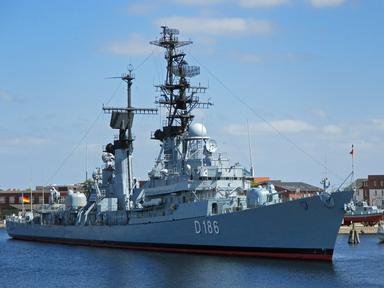Quiz Answer Key and Fun Facts
1. Sir Francis Drake faithfully served Elizabeth I from 1563-1596; filling England's coffers, and his own, with pirated Spanish and Portuguese gold from the New World. He was a brilliant sailor and navigator, and had already circumnavigated the globe prior to the attack by the Spanish Armada in 1588.
What particularly helped the English scuttle the Spanish Armada fleet?
2. The English Navy of the 16th Century was generally indistinguishable from piracy and privateering. Much encouraged by the monarchy, who benefited financially from this new influx of wealth, these men flourished. Sir John Hawkins, a cohort of Francis Drake's, was responsible for the redesigning of the English galleons and the reorganization of the navy. Yet he was also an opportunist. He formed a syndicate of wealthy English merchants to finance a new trade venture. What was this new, lucrative trading opportunity?
3. Naval crews in the 16th century must have been a hardy lot, especially those that sailed around the globe on unknown seas. The early ships of discovery provided little or no comfort for the crew who slept on the hard boards, without the benefit of mattresses or bunks. Wooden cages suspended over the rails addressed the problem of disposal of human waste. What were these contraptions called?
4. The dreadful reputation of shipboard food in the Royal Navy, really did not change for nearly 300 years. Food storage was always a problem, so that stores were constantly damp and rotting. Add the infestation of rats and mice and weevils in the biscuits and you have a delightful daily menu. Scurvy was one of the many diseases that was prevalent on long voyages. It was a highly debilitating disease that often proved to be fatal. Before the naval authorities knew the cause of scurvy, how did they deal with the problem?
5. With all the wealth that was being carried aboard ships to and from the New World, it was a great time to be a pirate. The most famous of all was Blackbeard, who caused terror and mayhem among the ships that sailed the Caribbean in the first quarter of the 18th century. Despite his fearsome appearance, he is known to have had a weakness for the ladies. About how many wives is he reputed to have had?
6. Discipline aboard ships was essential, especially in time of war. From the mid 17th century, England was expanding her empire, and the Navy could not function without good order. Punishments for specific offenses were listed in the Admiralty Black Book, such as sleeping on watch. Each offense carried a more and more brutal punishment. What was the punishment for a fourth offense on watch?
7. Captain William Bligh (of Bounty Mutiny fame) had proven himself a hero and master sailor, prior to taking command of the HMS Bounty in 1787. He was given the mission of sailing to the South Pacific to collect breadfruit trees. Charles Laughton, Trevor Howard and Anthony Hopkins portrayed Bligh, each in their own interpretation. The more empathetic Bligh of Anthony Hopkins was probably nearer the truth. The real reasons for mutiny are somewhat unclear. It would seem that Fletcher Christian and followers would most likely have been hanged, had they ever returned to England.
We know that Fletcher Christian and the other mutineers forced Bligh over the side into the Bounty's cutter with a sextant, cutlasses and several days food and water. What happened to Bligh?
8. In the 1780s, the Royal Navy began to dramatically increase its fleet. It grew from 40,000 men in 1782 to 120,000 men in 1799 (bearing in mind that the population of Britain at that time was around 9,000,000). Although the backbone of the navy were volunteers, they were not sufficient to face the increasing threat of war in Europe. What was the primary 'recruiting method' used at this time?
9. "Water, water everywhere and not a drop to drink' - The Rime of the Ancient Mariner. Fresh water was scarce and space was limited. Any water, even in casks, did not keep long. Vegetables were cooked in salty water, the steam being cooled in a copper condenser to provide distilled water for the surgeon's use. Beer or wine was the usual tipple, up to a gallon a day per man. The introduction of the rum ration in 1740 was essentially a means to save space. What was the daily ration of rum?
10. In fairness to the Royal Navy, I thought we should take a look at the chap that stands atop the column in Trafalgar Square in London, Horatio Nelson. Arguably the finest officer in Royal Navy History. A sort of heroic romanticism seemed to have attached itself to the navy, giving the public an unreal sense of the navy as a whole. Winston Churchill disagreed with such sentiment and uttered the immortal words "Naval Tradition? Monstrous! Nothing but rum, sodomy and the lash". What was one of the main reasons that Nelson was consistently victorious over the French and Spanish fleets?
Source: Author
Englizzie
This quiz was reviewed by FunTrivia editor
gtho4 before going online.
Any errors found in FunTrivia content are routinely corrected through our feedback system.

